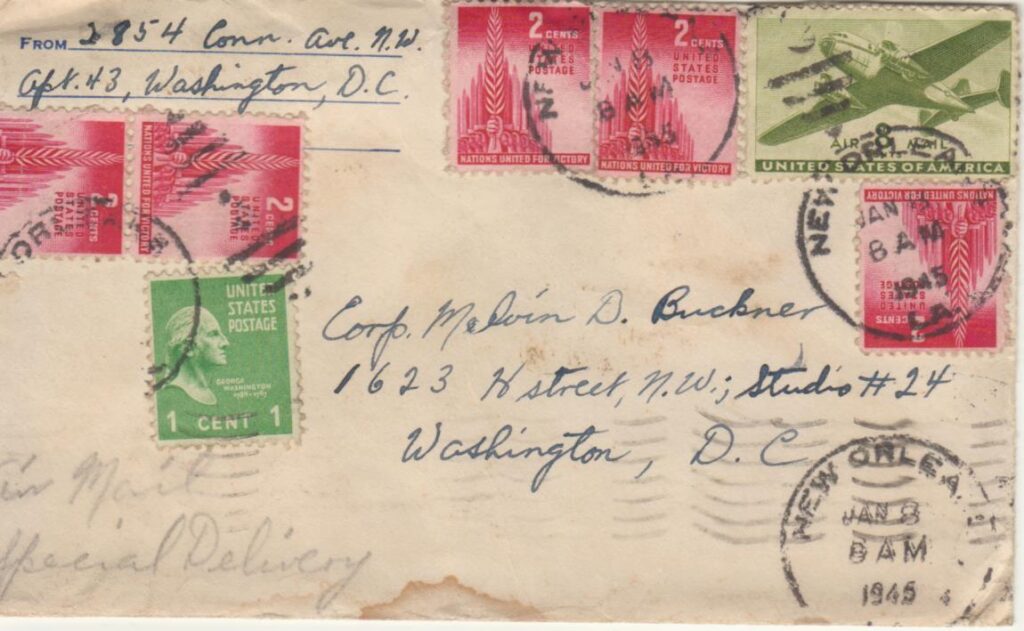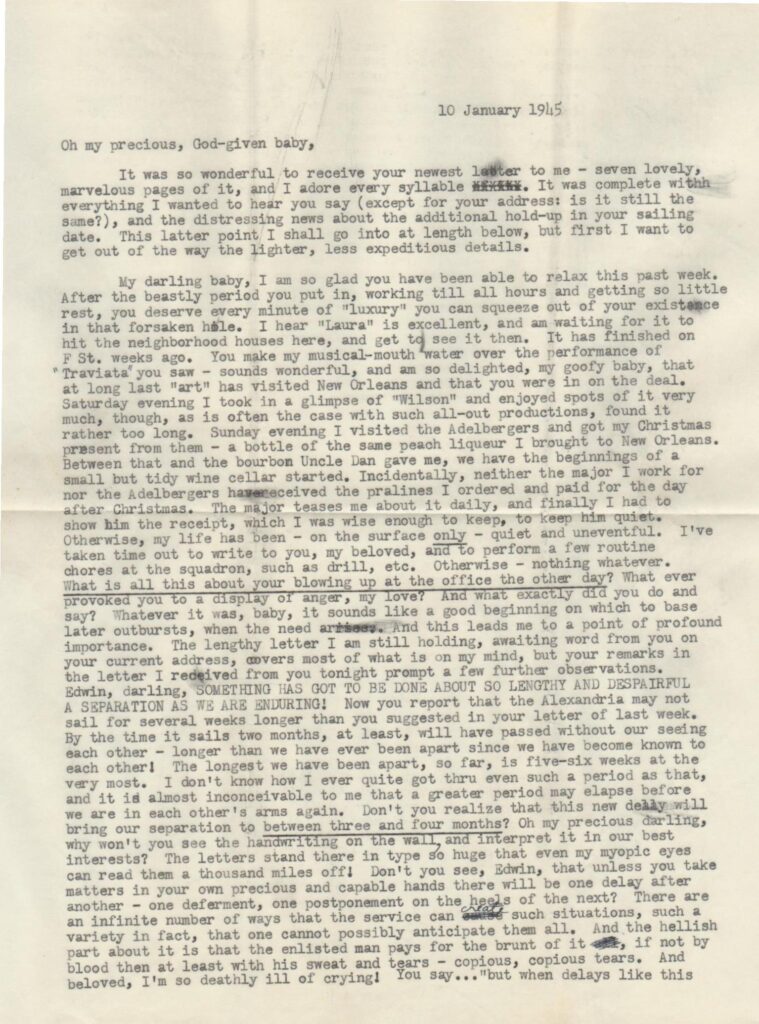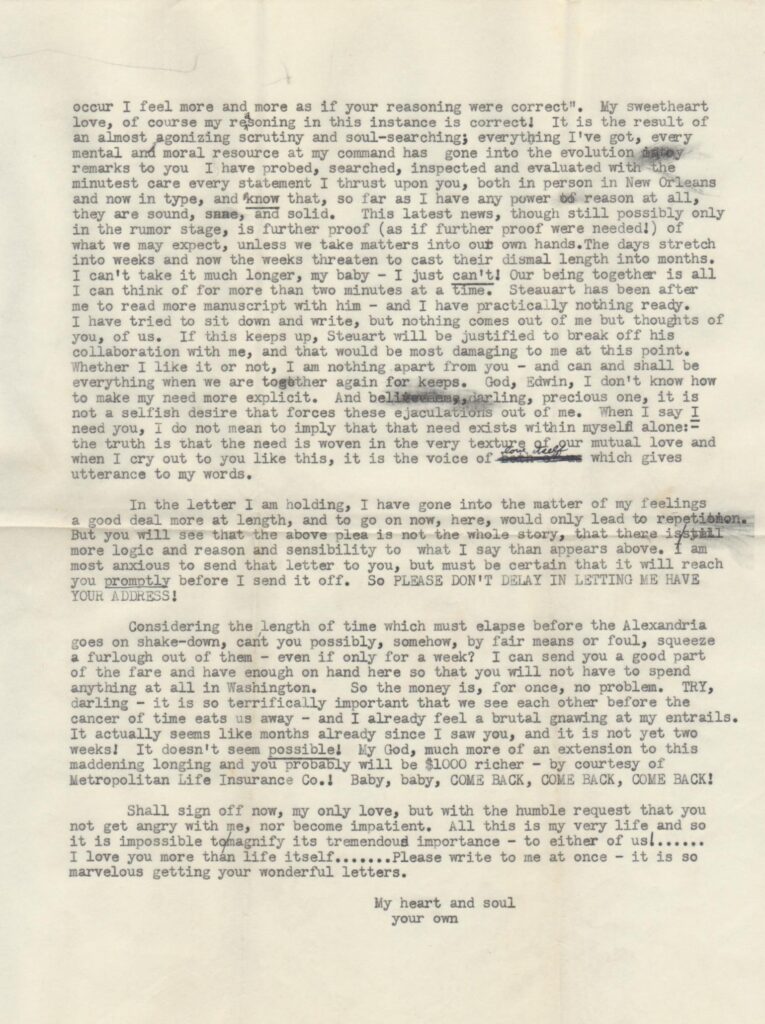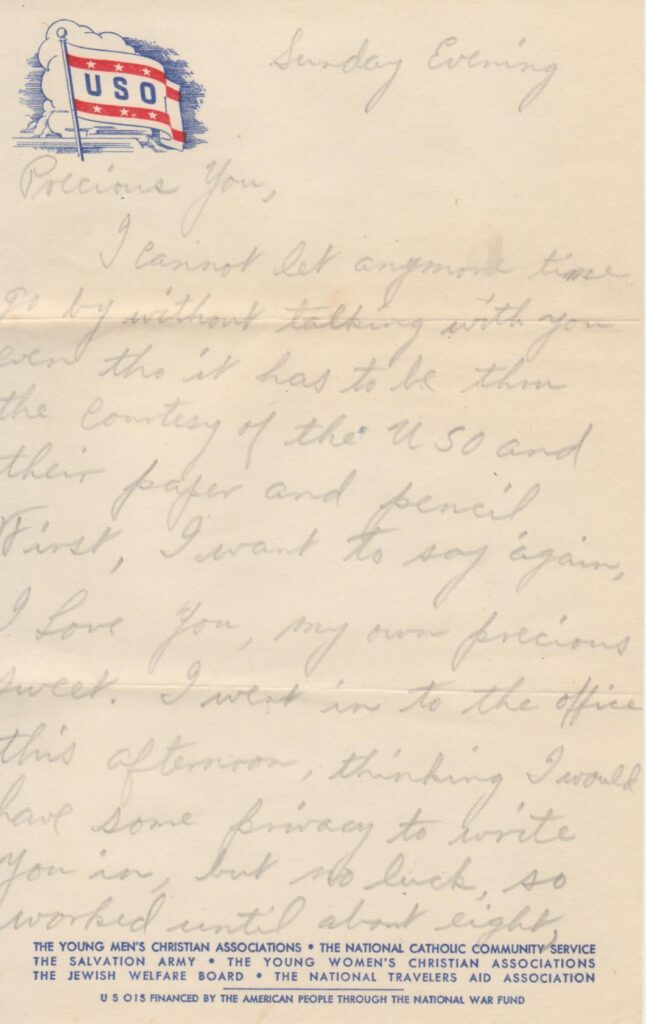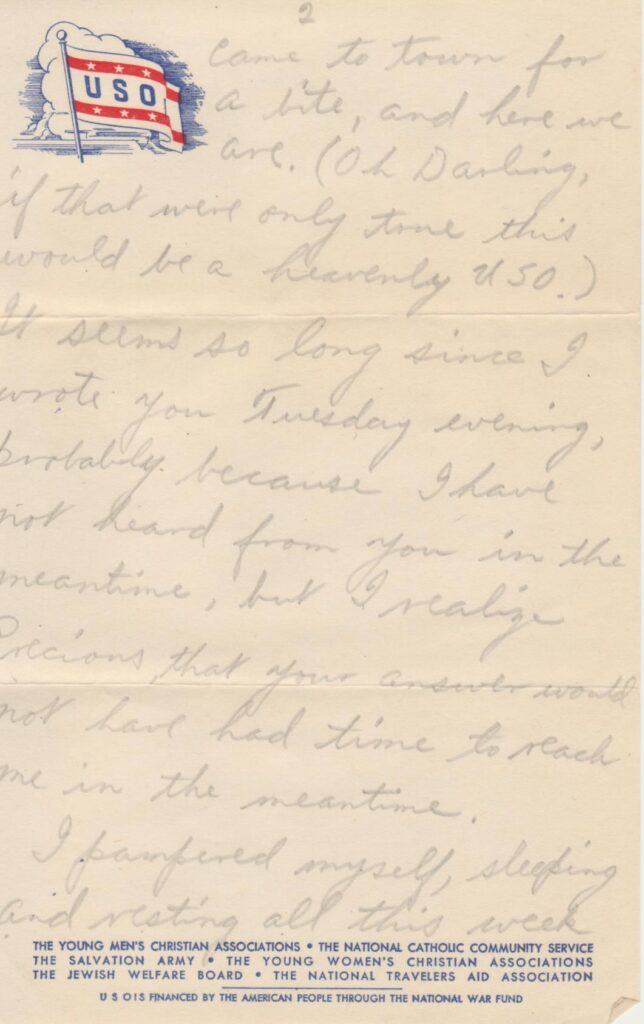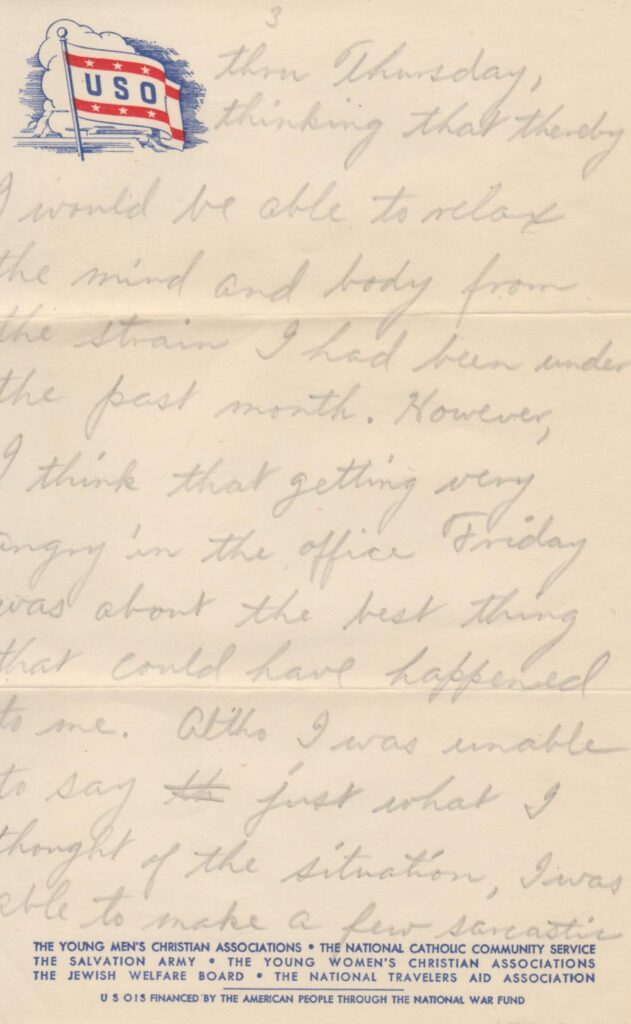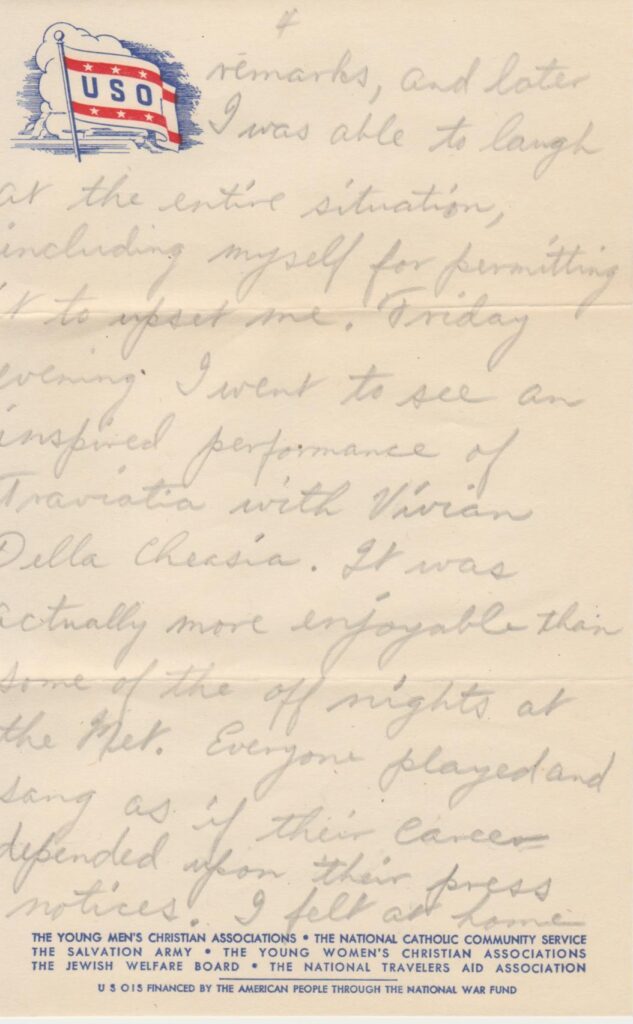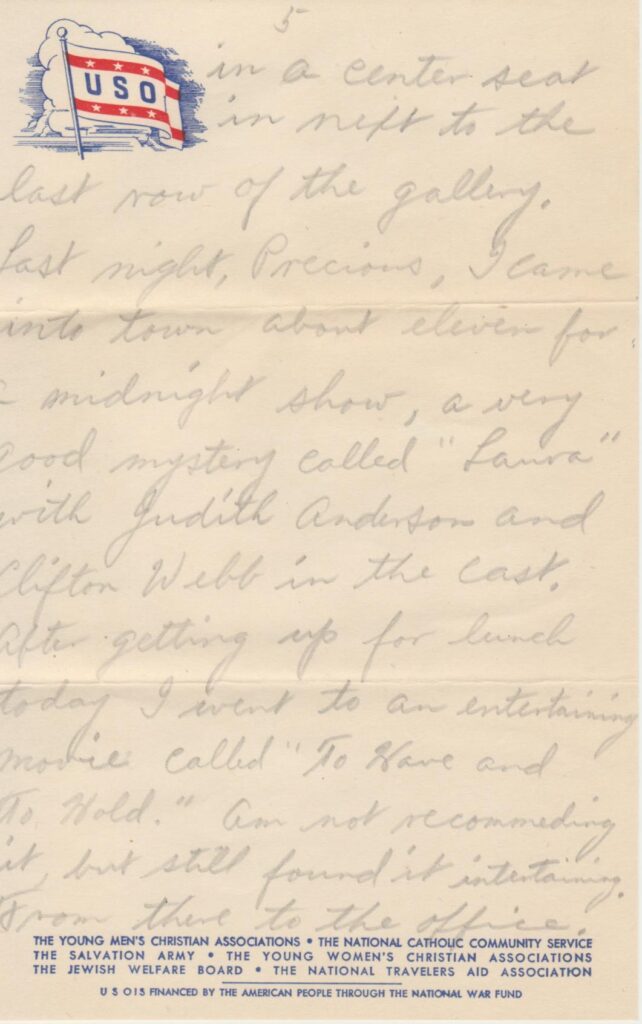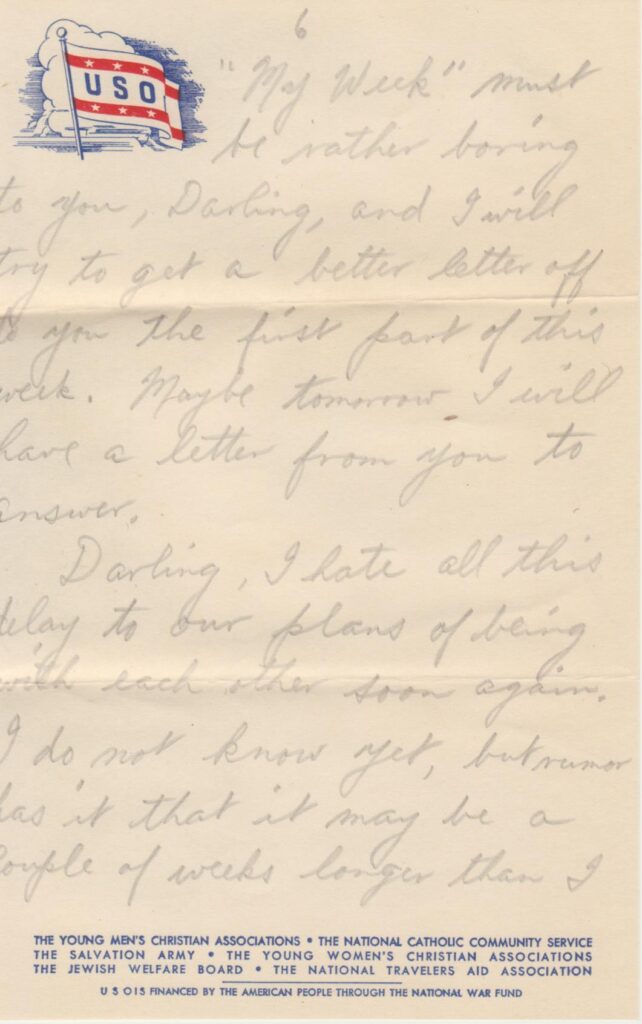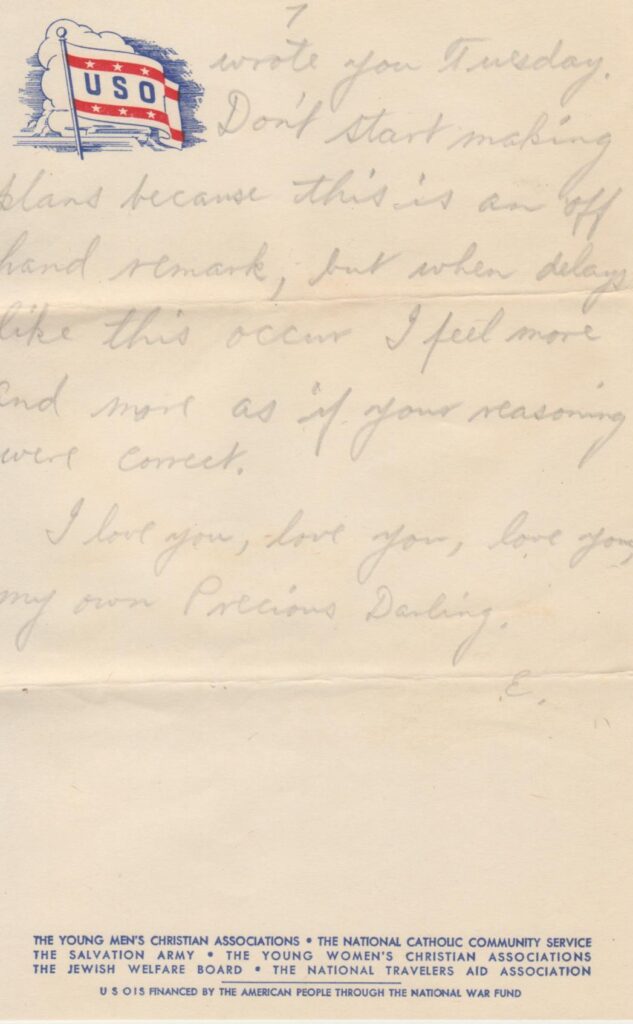In the Margins of History: The Love Letters of Edwin Morrison and Melvin Buckner
In the summer of 1945, as the world stood at the edge of victory and recovery after six years of global war, two men—one a soldier, the other an artist—were quietly and urgently arranging a reunion. Their letters, written in the shadow of military regulations and social restrictions, reveal not just a meticulous coordination of train schedules and hotel bookings, but something far more profound: the deep, enduring love between Edwin Reid Morrison (1916–2000) and Melvin Daniel Buckner (1915–2010).
These letters—typed and handwritten, filled with elegant prose, hurried footnotes, and unapologetic affection—trace the emotional geography of a relationship that bloomed in a world unprepared to accept it. They were never just correspondence; they were lifelines. They wove together longing, wit, domestic minutiae, military logistics, creative dreams, and an unshakable devotion that would last a lifetime.
Letters of Love and Logistics
In letter after letter, Edwin writes from his office, breathless with anticipation, preparing for Melvin’s arrival in Washington, then Miami, then eventually Puerto Rico. There is the hurricane that nearly delays Melvin’s travel, the failed booking at the YMCA, the substitute recommendation of the Palace Hotel, the urgent plea: “Please manage somehow to meet me! I arrive at 10:05 Sunday morning.” Behind every reservation made or missed, every military instruction, lies a heart beating faster not just for reunion, but for sanctuary.
What is remarkable is not only the love expressed, but the normalcy they fought to preserve—a normalcy denied to most same-sex couples of the time. Edwin jokes about arguing over Spanish lessons, frets over missed mail pickups, and delights in the chance to show Melvin a new painting. Their relationship is not sensational, but deeply human: practical, playful, vulnerable. In one letter, Edwin writes: “All I want in Puerto Rico (as all I want anywhere) is YOU, my marvelous snookey-baby!”
This desire, tender and unguarded, was dangerous in 1945. In the military, homosexual relationships were cause for discharge or worse. In civilian life, such affections were criminalised and pathologised. But these men wrote to each other not in code, not in euphemism, but in full voice—one that resonates still.
A Partnership Forged in Private
Edwin was an artist and writer, expressive and emotionally articulate; Melvin was, in the glimpses we see, steady, meticulous, and no less affectionate. Their letters document not only a romantic love but a shared project of survival and affirmation. They navigated the tension between visibility and discretion with intelligence and courage.
After the war, they stayed together. Eventually, they moved to England—a quieter place, perhaps, to live out their lives as partners. Long before marriage equality, before pride parades or decriminalisation, they lived as husbands in everything but law. They built a life not with fanfare, but with decades of ordinary commitment.
Melvin Daniel Buckner died in 2010, aged 95. Edwin Reid Morrison had passed away ten years earlier, in 2000. They are buried together, as they should be—not side by side in anonymity, but joined forever by the story they wrote in letters.
Legacy and Quiet Resistance
Edwin and Melvin’s love story is a quiet act of resistance—not against war, but against forgetting. In their words, we see the emotional cost of being in love when society deemed that love unacceptable. And in their endurance, we see the triumph of something braver than defiance: intimacy.
These letters remind us that LGBTQ+ history has often been preserved not in headlines, but in attics and envelopes—in the folds of personal correspondence where the world was momentarily honest and kind. When Edwin wrote, “I’ll practically die if I have to see you for the first time down there at the Basel,” it was not melodrama. It was the voice of a man who had waited through war, danger, silence, and fear for the touch of the person he loved.
Today, as we read their words, we understand that what they shared was not a secret—it was a life.
Sunday / Monday 7 / 8 January 1945
Sunday Evening
Precious You,
I cannot let anymore time go by without talking with you (even though it has to be through the courtesy of the USO and their paper and pencil). First, I want to say again, I love you, my own precious sweet. I went in to the office this afternoon, thinking I would have some privacy to write you in. But no luck, so I worked until about eight, came to town for a bite, and here we are. (Oh Darling, if that were only true this would be a heavenly USO.)
It seems so long since I wrote you Tuesday evening, probably because I have not heard from you in the meantime, but I realize, Precious, that your answer would not have had time to reach me in the meantime. I pampered myself, sleeping and resting all this week then Thursday, thinking that the day I would be able to relax the mind and body from the strain I had been under the past month. However, I think that getting very angry in the office Friday was about the best thing that could have happened to me. Although I was unable to say at first what I thought of the situation, I was able to make a few sarcastic remarks, and later I was able to laugh at the entire situation, including myself, for permitting it to upset me.
Friday evening I went to see an inspired performance of Traviata with Vivian Della Chesia. It was actually more enjoyable than some of the off nights at the Met. Everyone played and sang as if their career depended upon their press notices. I fell at home in a center seat in next to the last row of the gallery. Last night, Precious, I came into town about eleven for the midnight show, a very good mystery called “Laura” with Judith Anderson and Clifton Webb in the cast. After getting up for lunch today I went to an entertaining movie called “To Have and To Hold.” I am not recommending it but still found it entertaining!
I do hope you will not have a real blue Monday, Sweet. Perhaps this note will bring you a smile and help the day pass quickly. I must stop now as the USO is closing, but I will continue soon because I have so much to tell you. In the meantime, remember always how much I love you and that you are the center of all my thoughts and prayers.
Goodnight, Precious. May your sleep be restful, your dreams sweet, and your awakening full of promise. All my love — always — Your Own.
Monday Evening
Sweetheart, I didn’t continue last night because I had so little privacy, and I was tired. But tonight I have my room and am resting before going to sleep. It has been a usual Monday — busy, crowded — but no difficulties. Only the knowledge that I haven’t heard from you makes it a little hard to take.
But I do love you so — and every day that passes makes me feel closer to you in spirit. I feel your love surrounding me always — and I pray you feel mine. I am happy in the thought of you — and I shall go to sleep with your name on my lips.
Good night, my Darling. All my love, Your Own.

